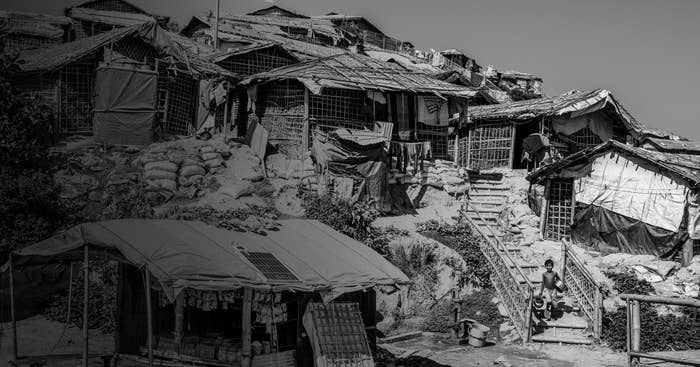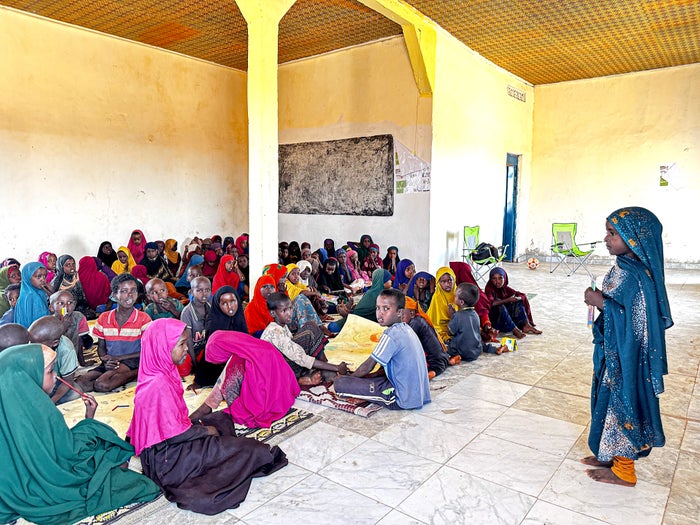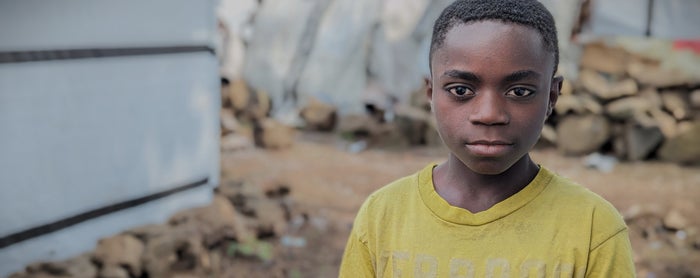In their own words, four resilient Rohingya children, Mobarak (16), Achiya (15), Jonayed (12) and Sukutara (12) tell their story of danger and courage. Fleeing war, making it across the border, becoming refugees and now living in the world's largest refugee camp, Cox's Bazar, Bangladesh.
Take a few minutes, to hear their powerful voices...
"While we were in Myanmar we had no idea about what refugee is! We never heard this word." - Achiya (15)
“We were oppressed there (Myanmar). Our home was burnt up, women were raped and many children died. We suffered a lot for food and other things.” - Mobarak (16)
"Our neighbours and many of my friends were shot and burnt to dead in Myanmar." - Joyaned (12)
"I came alone and met my parents 10 to 12 days later. I miss my home, belongings, mosque and my school back in Myanmar." - Sukutara (12)
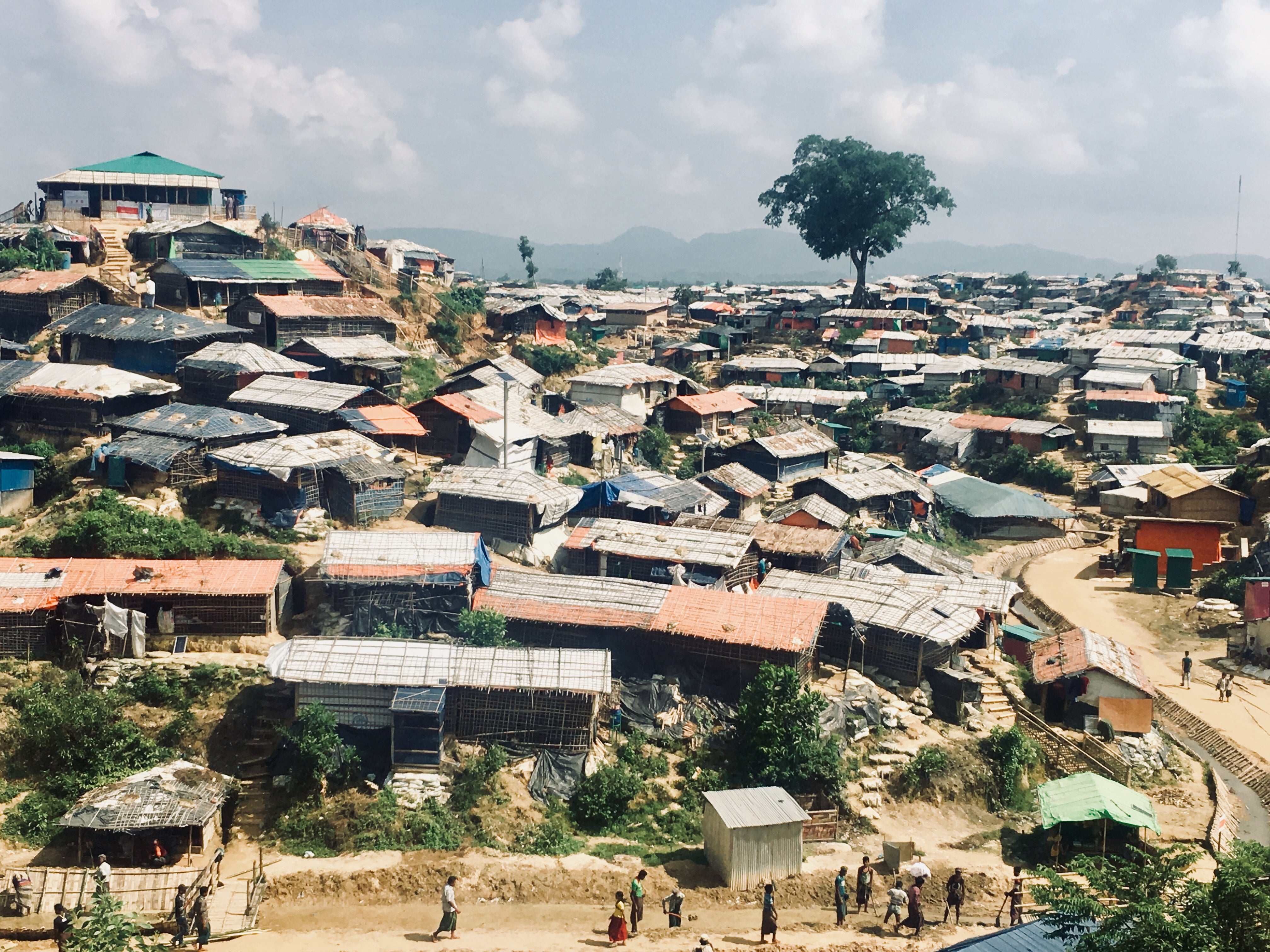
Cox's Bazar is the world's largest refugee settlement with an estimated 1 million refugees. Food, basic essentials, gender-based violence, education, climate disasters and over-crowding are everyday difficulties facing children and families.
“We already walked a long way, but we chased back to our home. Again we started the journey, but there was a helicopter riding in the sky and chased us back. Somehow I managed to cross the border finally.” - Sukutara
“We stayed in a village at the border for two months.” - Mobarak
"We had to cross the river on the way to Bangladesh. We didn’t have food to eat, nor a drop of water to drink. We starved all the way long." - Jonayed
“We couldn’t bring anything with us while fleeing Myanmar. We just tried to save our lives, and we did it.” - Achiya
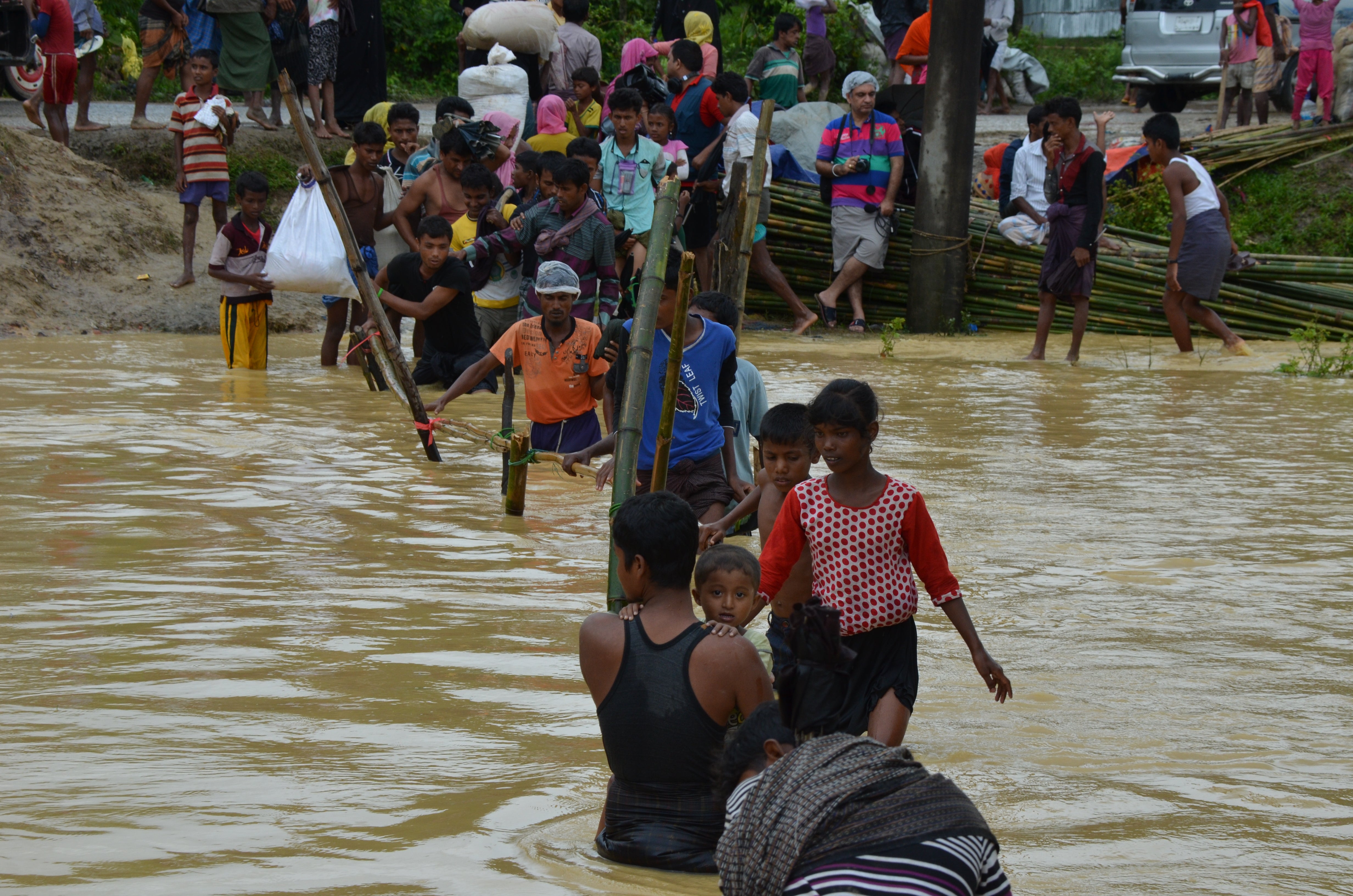
In Myanmar, 2017 ongoing ethnic tensions escalated resulting in a deadly conflict that forced hundreds of thousands of Rohingya Muslims to flee for their lives, crossing the border into Bangladesh.
"Living in the camp we suffer for food, shelter, bathroom, and toilet everything." - Mobarak
"We receive less amount of rations. So food ration is not enough for us. That’s also a big challenge. We receive 13kg of rice per person for a month, it’s not enough to run the month." - Achiya
"Most difficult things in the camps are that every year landslide happens, our shelter gets damaged and tarpaulin gets tore off." - Sukutara
"It stinks while walking through the path in the camp. The camp is always dirty." - Joyaned
“We have gone through many difficulties since we traveled from Myanmar. Here in the Bangladesh also we have been facing many challenges.” - Achiya
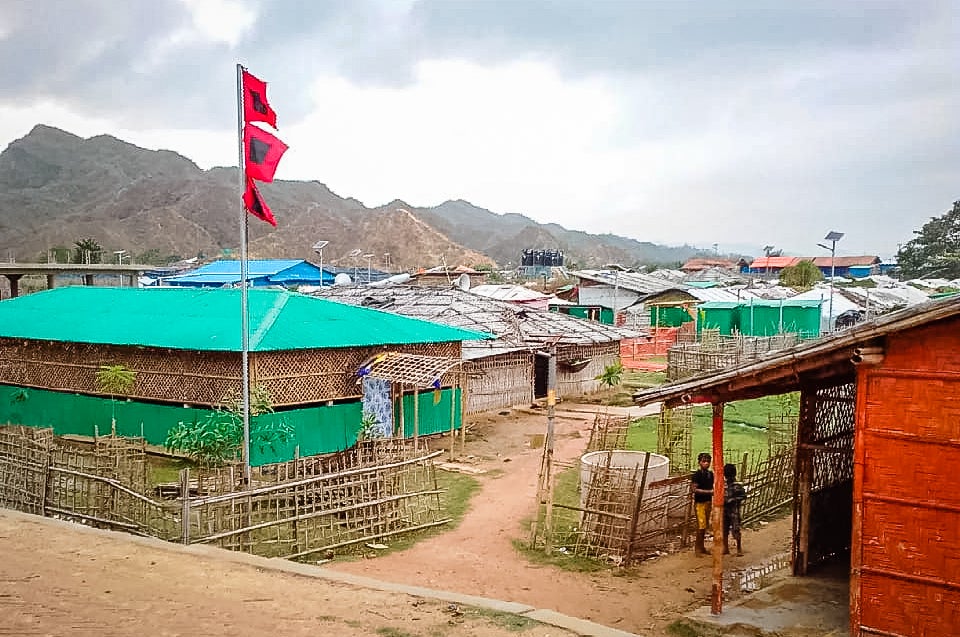
"When the signal flag 3 rises we get to shelter in the cyclone shelters" says Harun, 23, a hygiene Rohingya volunteer of World Vision. Cyclones and landslides are a common climate disaster in Bangladesh. A disaster management unit has been activated in Cox's Bazar. Volunteers and staff are trained on the "Not to go outside" policy and are responsible with educating the community, ensuring people understand the flag signals, their meanings and safety procedures.
"We suffered a lot during lockdown. Our shelter is small and many people live in. The camp is densely populated. So it was difficult for us." - Sukutara
"We can’t study and do nothing. Just passing our time meaningless. Our school is closed more than one year. I love most studying English in the school." - Joyaned
"Due to lockdown our school is closed for one year. Now we can’t go to school. I love the subjects most in the school, one is English and another is Burmese." - Mobarak
"There is World Vision center near us. I attended sessions there. I have learned skills like printing and embroidery on clothes. They also planned to teach us other skills. But because of lockdown the center is closed now." - Achiya
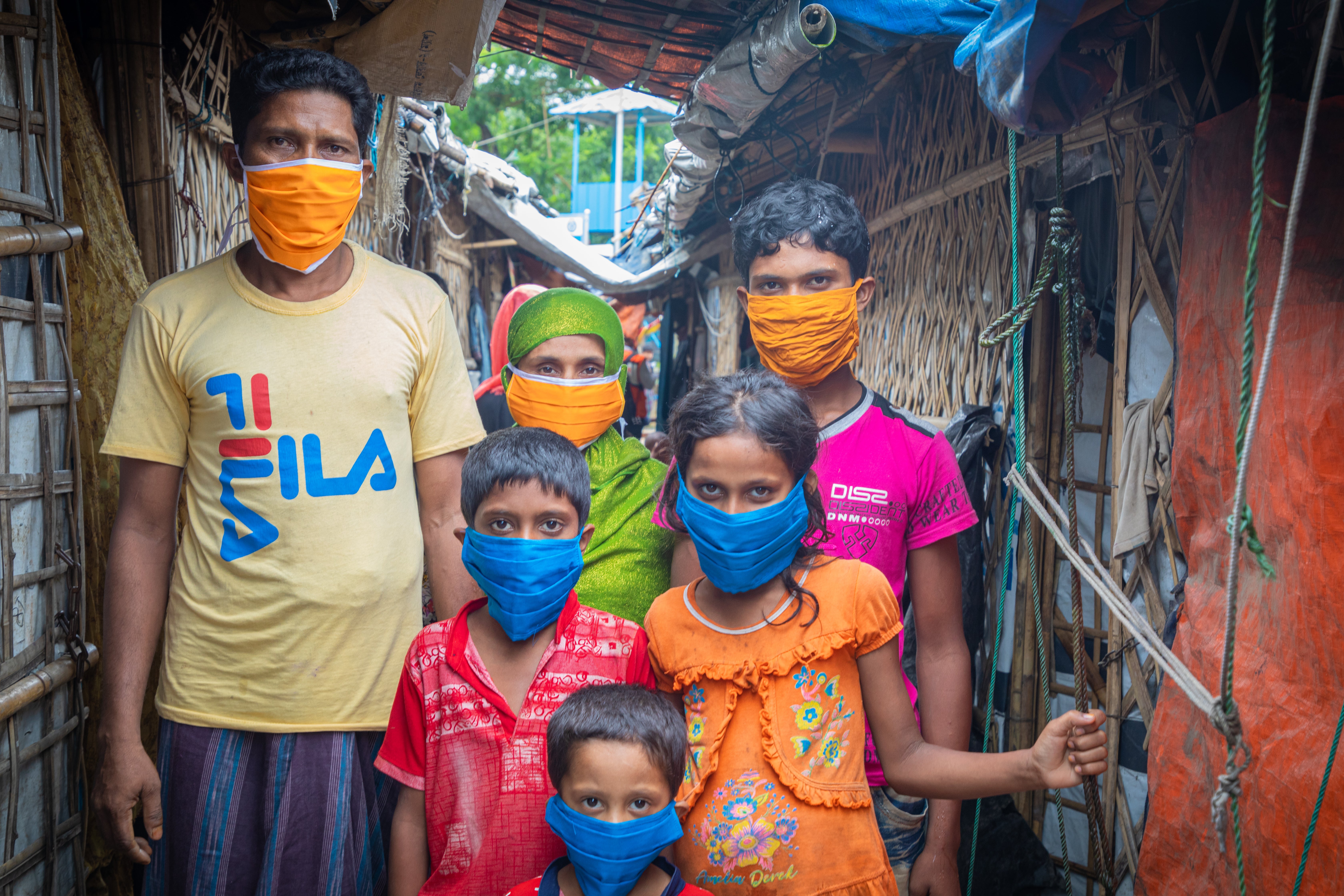
Almost 1 million people live in Cox's Bazar. Isolating and social distancing is almost impossible. Schools were closed for over a year, students living in a refugee camp had almost no opportunity to continue with 'remote learning'. Face mask and family hygiene kits were distributed throughout the camp.
Xavier Sku
On March 22, a massive fire raged through sections of the camp, causing destruction and loss of life.
"People started running as it was massive. I got separated from my parents and brothers. I became alone. I (got) lost in the crowd and scared to death. I thought I was going to die and no one could find me if I died there." - Sukutara
"Many shelters were burnt down. We were scared of dying. When we came back home there wasn’t even a grain of rice to eat. Everything was looted from our home." - Achiya
"We were frightened because that was a really massive break down. All of our assets including money and other things all had been burnt up. We couldn’t save anything. We cleaned the place and stayed here covering us by a tarpaulin." - Mobarak
"We almost settled down here. But the devastating fire again destroyed everything." - Sukutara
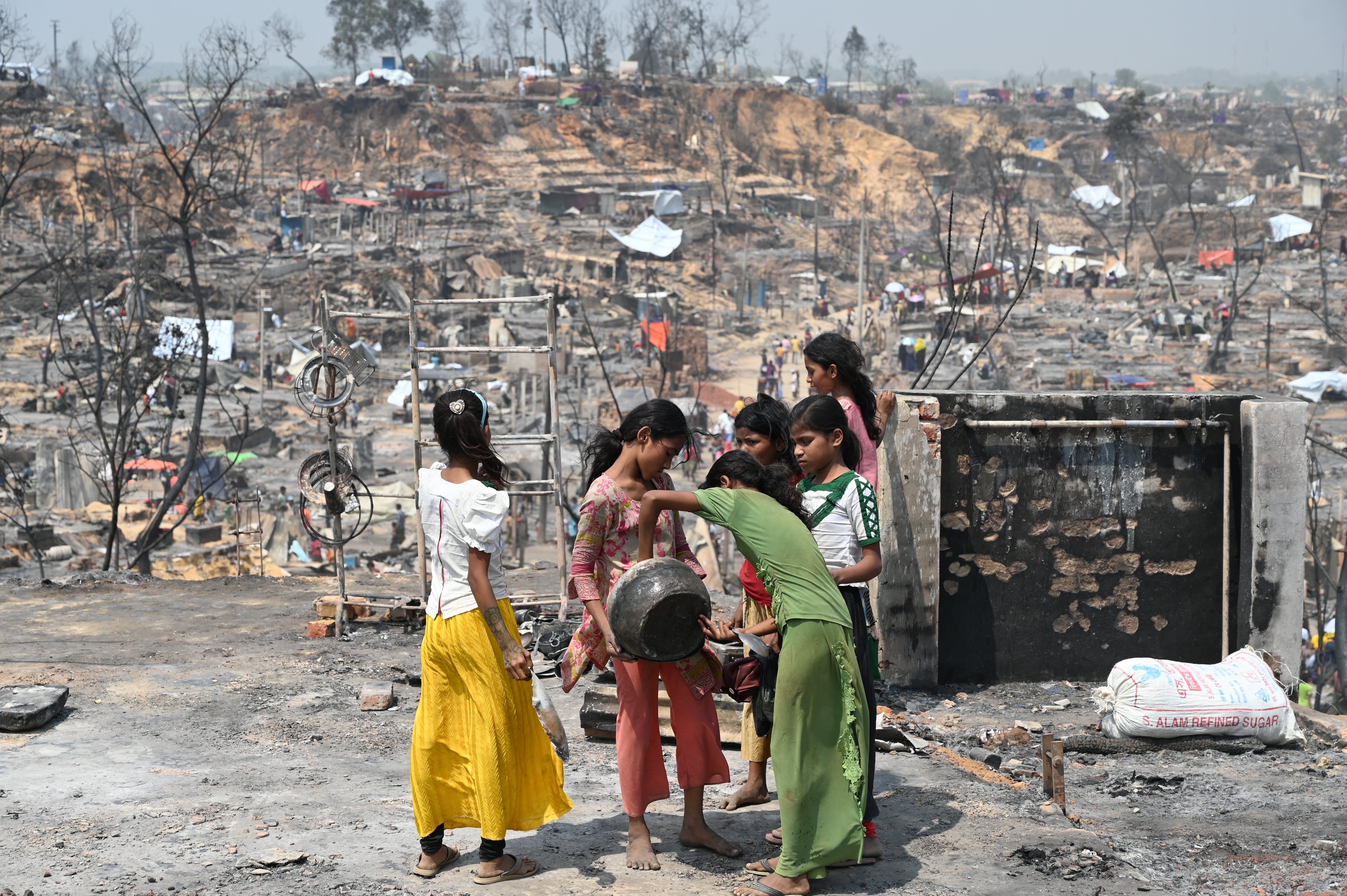
Young girls find a pot amongst the ashes. On March 22, a fire ripped through the camp destroying thousands of shelters, belongings, water networks, latrines, street lights and sadly, lives.
Xavier Sku
To ensure children and families affected by the fire ccan survive, we have delivered 1.2 million hot meal packages to 50,000 affected families, provided thousands of hygiene and dignity kits for women, installed 51 street lights in Camp 8E (one of the worst affected camps), repaired 96 latrines, trucked in 3,347,000 liters chlorinated emergency water supplied and installed 4 water tanks as apart of the project to re-build destroyed water networks.
In the midst of disasters like fire, cyclones or a global pandemic, our programs are flexible and can adapt. Collaborating with communities we make sure we're delivering impact to the most pressing needs refugee children and families face, in that moment.
In refugee camps around the world, Childhood Rescue is helping the most vulnerable children to survive, recover and work towards, building a future.
What can I do?
It’s easy to feel helpless in situations like this but rest assured… you, us, everyone, together, can help make life-changing impact. And we are!
Here are two different ways you can be a part of the change.
- 1
Donate
Every gift makes a difference. Our Childhood Rescue fund helps children living in the world’s most dangerous places.
Donate Now - 2
Share on Social Media
Raising awareness is vital. Help make people aware of the situation and the difference we can make, together.
